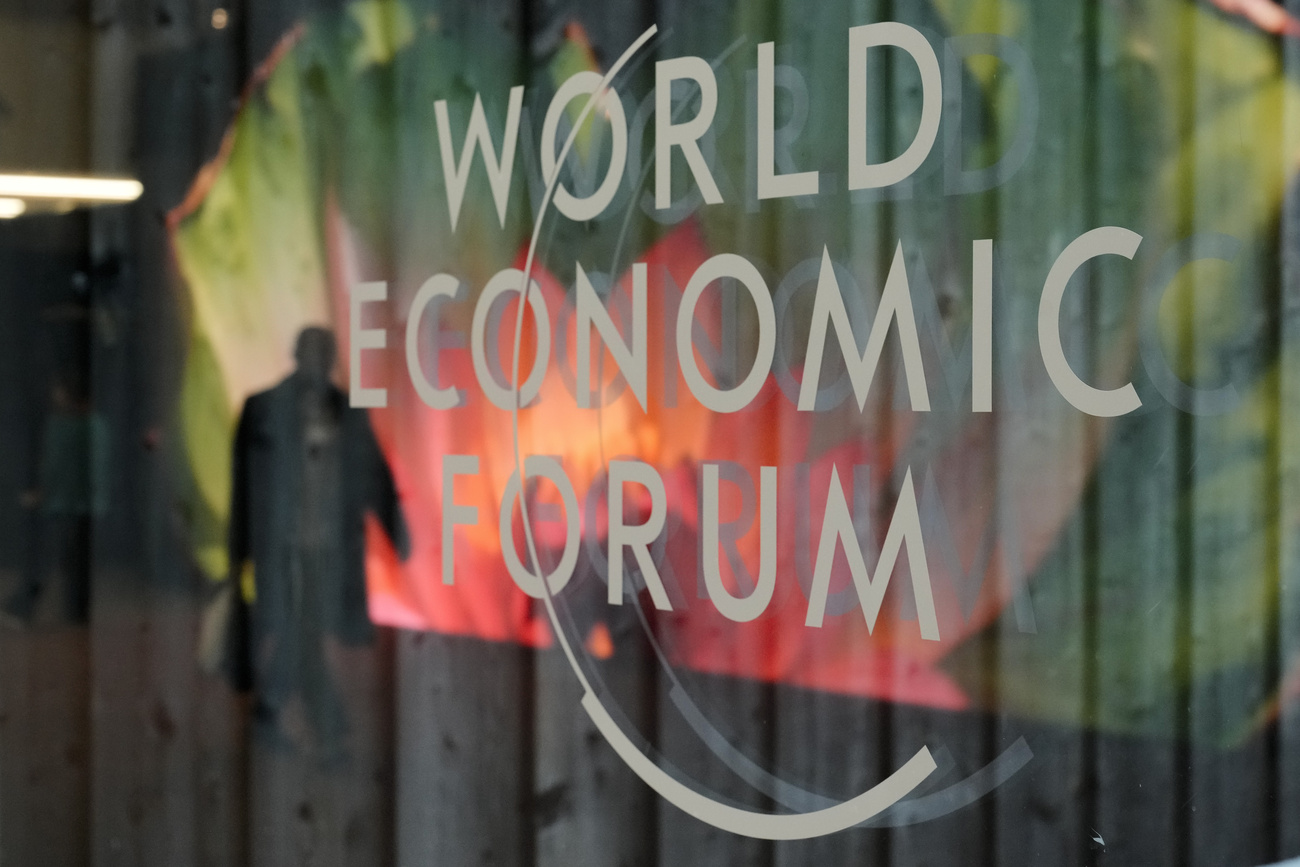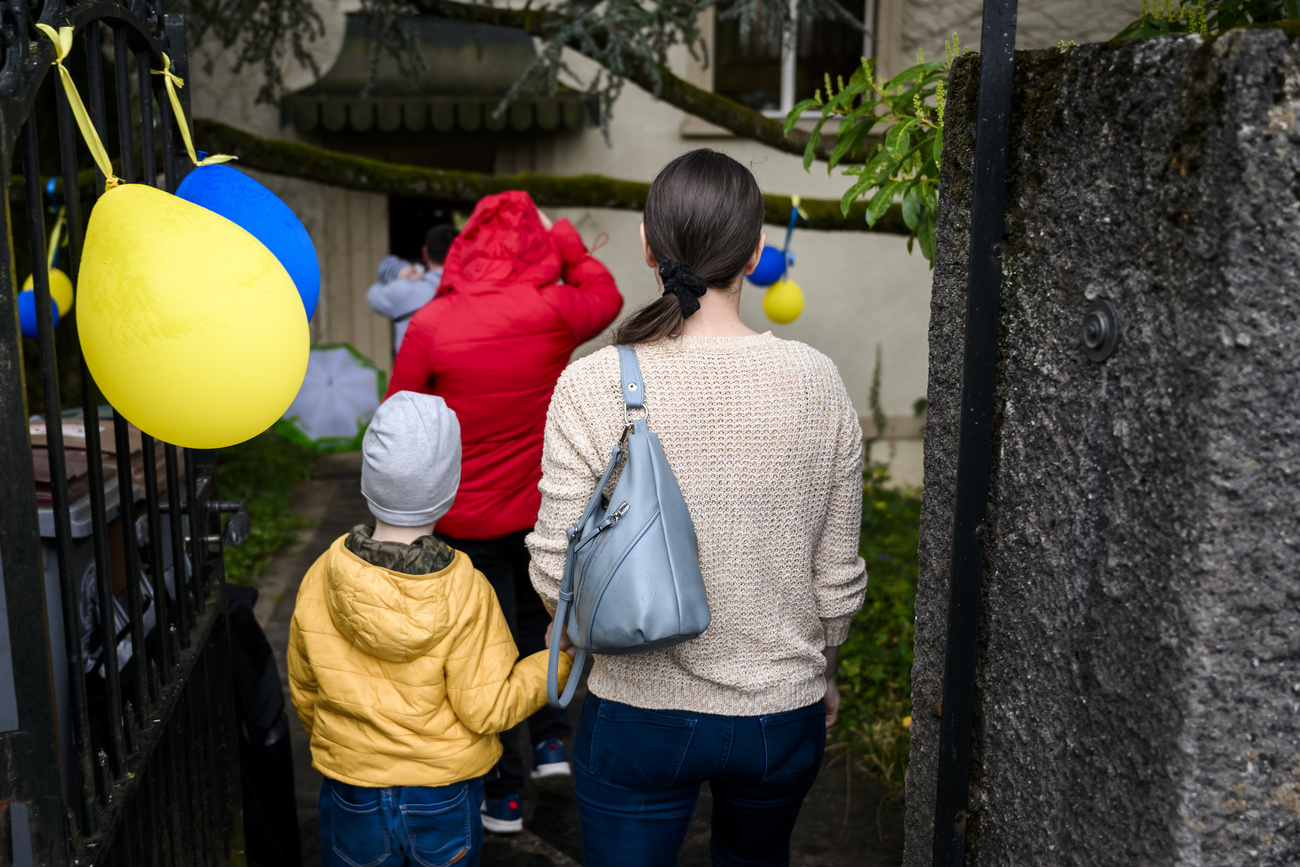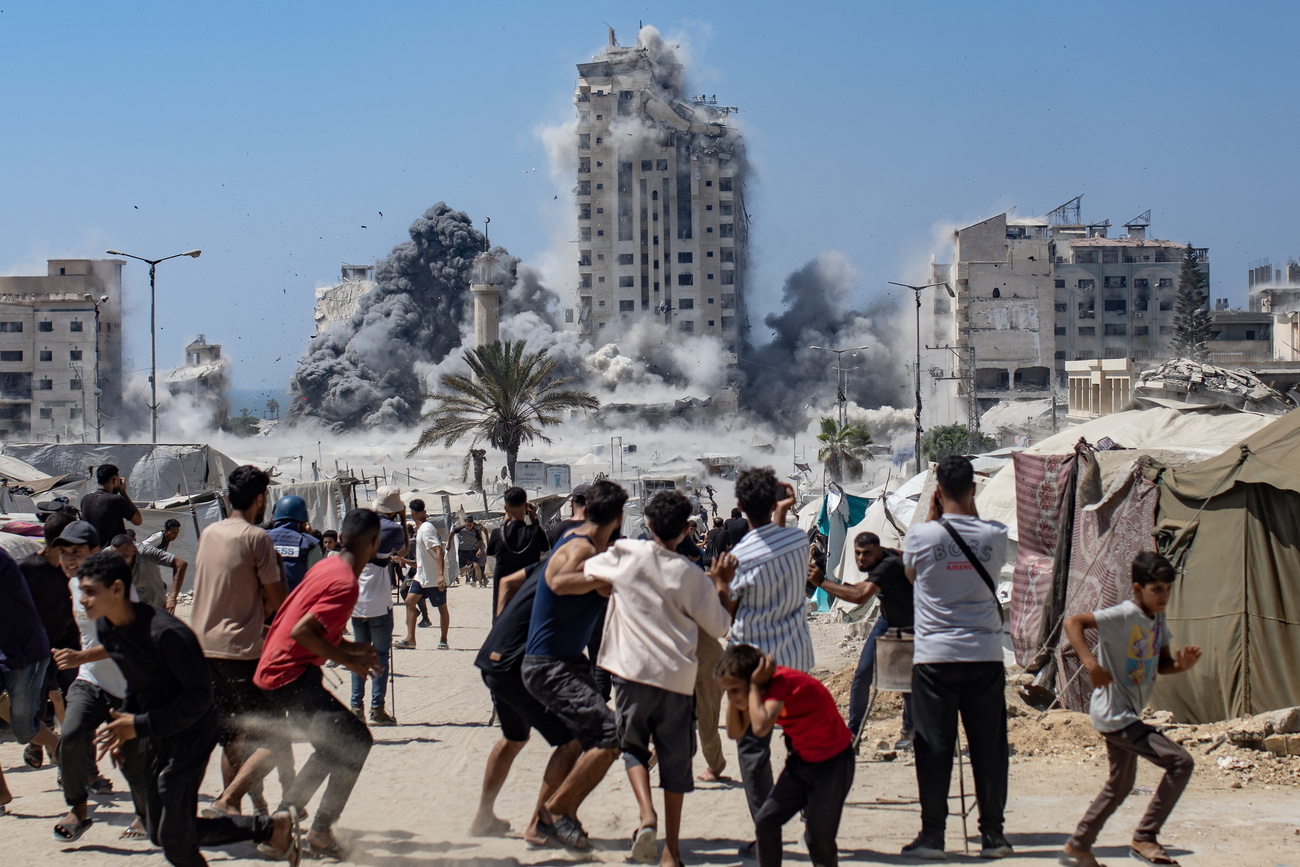
Swiss charity warns of waning solidarity with Ukraine refugees

A civil society group says solidarity with refugees from Ukraine in Switzerland is waning more than a year after Russia's invasion of Ukraine.
Swiss host families increasingly urge their guests to find their own accommodation and the willingness to provide voluntary support and donations is dwindling,” Julia Peters, president of the charity foundation, Good Friends for Ukraine.
The changing mood is also noticeable in readers’ comments about newspaper articles on Ukrainian women. People say that [the Ukrainians] are given preferential treatment” she told the SonntagsZeitung newspaper.
“I’ve got the impression that the Swiss are losing patience,” she said. But many people don’t realise that the refugees can’t simply return to Ukraine and the war will not be over quickly, according to Peters.
Nearly 80,000 refugees from Ukraine have fled to Switzerland and most of them were granted a special legal status.
At one point over the past 12 months, about 25,000 refugees were put up by private individuals.
The others are living in centres put by local authorities, with the army providing additional logistical support and personnel.
Shortcomings
Peters also criticised the Swiss authorities for a number of shortcomings.
The authorities failed to address the crisis actively and the autonomy of the 26 cantons on asylum issues doesn’t help either, Peters said.
“The state also makes too little use of the resources of associations of volunteers,” she said.
Bureaucratic hurdles and language problems discourage companies from employing refugees, according to Peters. Many Ukrainians don’t speak a Swiss language – German, French or Italian – well enough.
+ Host families for Ukrainian refugees deemed a success, according to Swiss NGO

In compliance with the JTI standards
More: SWI swissinfo.ch certified by the Journalism Trust Initiative



























You can find an overview of ongoing debates with our journalists here . Please join us!
If you want to start a conversation about a topic raised in this article or want to report factual errors, email us at english@swissinfo.ch.